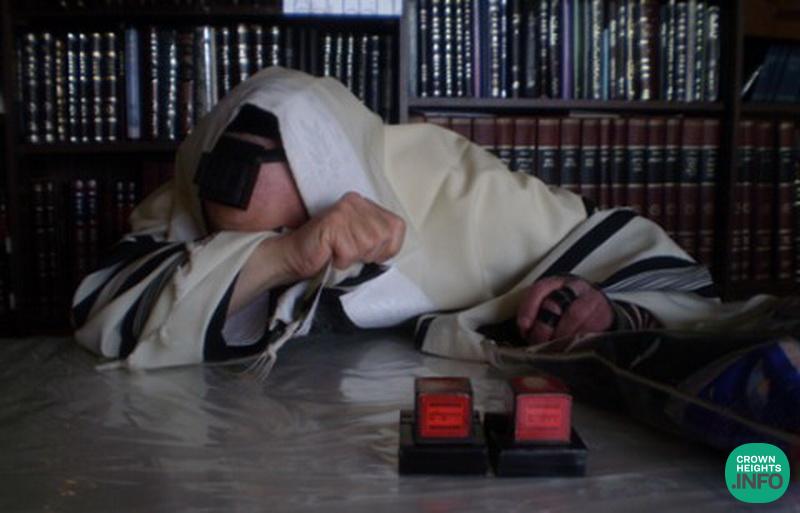
Weekly Dvar Torah: Born Anew
“The message of Pesach Sheni is that “it’s never too late; one can always correct and make amends” — even one who was impure or was on a distant path. Indeed, even if he brought himself to such a state willingly, he can nevertheless correct it.” (Hayom Yom 14 Iyar)
The Frierdiker Rebbe, tells of a saying popular amongst Chassidim; “there are three ‘Sheni’s’, three items that are called Sheni, second ones.
“Nefesh Ha’Sheni’, the second soul. Cheder Sheni, the second room. Pesach Sheni, the second Passover.”
The Nefesh Ha’Sheni, the second soul, is what the Alter Rebbe revealed in Tanya, that we all have a second soul, the G-dly soul. Second to the natural soul, the animal soul, that keeps us alive.
Cheder Sheini, the second room, is the small room that we find adjacent to the sanctuary of every Chassidishe Shul. Second to the main sanctuary. A custom that was instituted by the Miteler Rebbe that Chassidim should pray only in a Shul that has a Cheder Sheni, the purpose of which, is to enable Chassidim to meditate on their prayers, and pray to G-d with passion and devotion for many hours. In the Cheder Sheni they can do so undisturbed and away from the tumult and activity going on in the large sanctuary next door.
Pesach Sheni, the second Passover, which is a make-up time, to correct what you missed when the first Pesach came around. Even if a Jew is impure, and he drifted far off the path of Torah, and even if he did so deliberately, he still gets another chance.
The Rebbe concludes; when one takes his Nefesh Ha’Sheni, he connects with his G-dly soul, and he then enters the Cheder Sheni, to pray with intensity, and he meditates on the idea that one can always make amends and makeup for the past misgivings, everything will fall into place and will be corrected.
Why is this Sheni so powerful?
Our Rebbe explains it this way:
The uniqueness of Pesach Sheni is that you can make amends even if you transgressed intentionally.
The Posuk says:
אִישׁ אִישׁ כִּי יִהְיֶה טָמֵא לָנֶפֶשׁ אוֹ בְדֶרֶךְ רְחֹקָה לָכֶם …וְעָשָׂה פֶסַח לַה’
Any person who becomes unclean … or is on a distant journey, whether ‘among you’ … he shall make a Passover sacrifice for the Lord.
Translation: When a person is unclean because he transgressed, or he is on a far journey, away from the Torah path, ‘among you’ – even if you did so deliberately, he can still bring himself close to G-d.
This means that if you violated G-d’s way, you now get a second chance to make amends.
The question arises; the Mishna says:
הָאוֹמֵר: אֶחֱטָא וְאָשׁוּב, אֶחֱטָא וְאָשׁוּב — אֵין מַסְפִּיקִין בְּיָדוֹ לַעֲשׂוֹת תְּשׁוּבָה
One who says: I will sin and then I will repent, I will sin and I will repent, Heaven does not provide him the opportunity to repent, and he will remain a sinner all his days.
This means that if one strays from the path, he won’t be given the opportunity to make amends. So how can we say by Pesach Sheni that one can make amends even if he went off the path deliberately?
The answer is: We are dealing here with Passover, which is all about the birth of the Jewish nation.
Being born implies that before birth you did not exist at all. Therefore, whatever happened in the past no longer exists, you are now a brand-new person without any past history. So, whatever happened in the past is not like regular Teshuva, which comes to make amends for previous actions. From birth you are completely new, and whatever happened in the past does not exist in your new life.
This is something very unique to Pesach Sheni. You are given a chance to be reborn, as if there is no history of your past transgressions.
And this came about only because those who went astray, cried out to G-d for a way back. And Hashem listened and said; because you asked, I will give you this one-time chance on Pesach Sheni. Just like the Jewish nation was born on the first Pesach, now you can be reborn during the second Pesach.
Now is the time to be reborn like a completely new person.
What an opportunity, a special gift from G-d.
Have a rebirth of a Shabbos,
Gut Shabbos
Rabbi Yosef Katzman











